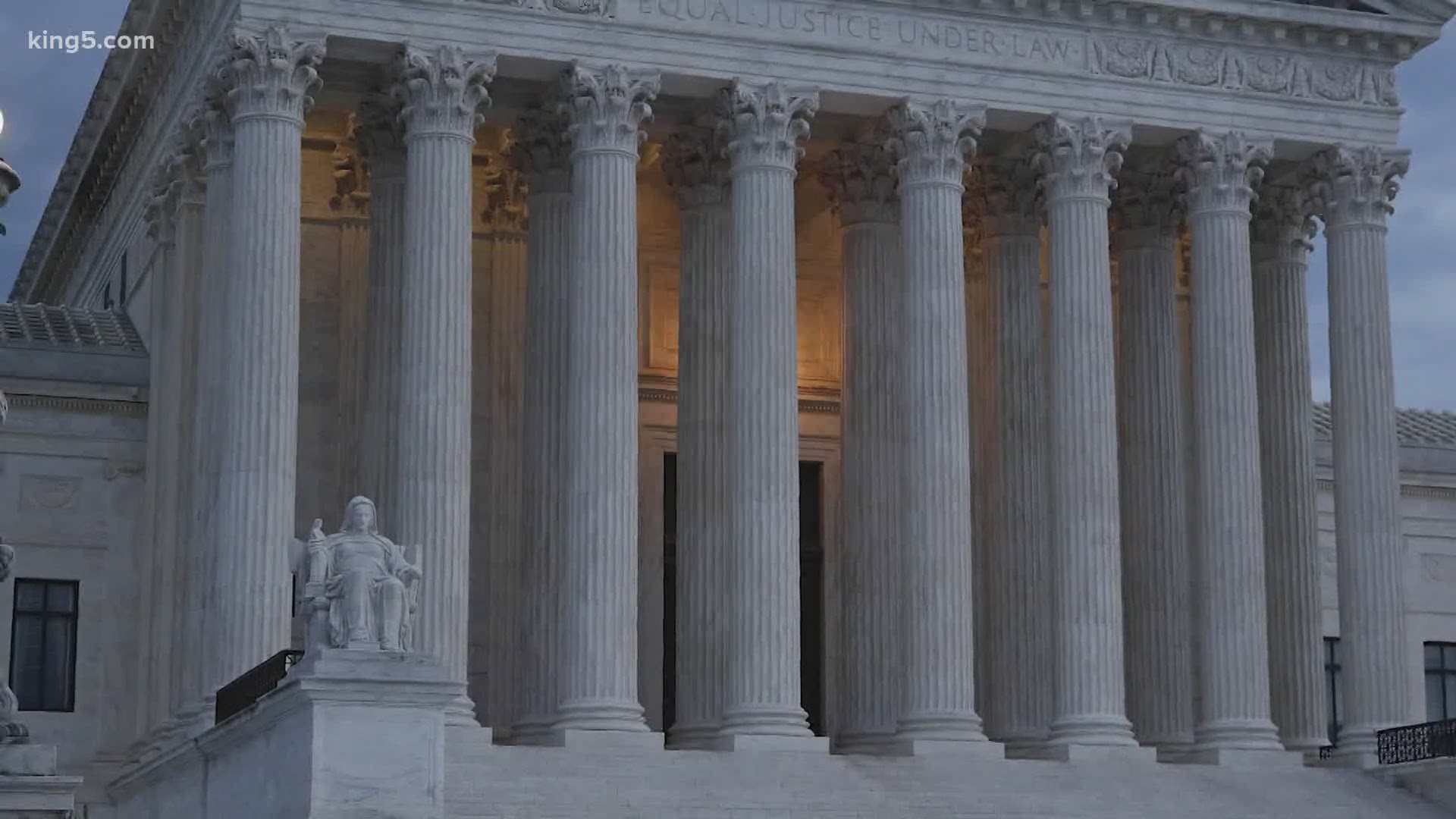The Supreme Court will hear arguments Wednesday morning about the actions of Washington State's so-called 'rogue electors'.
The case involves Bret Chiafolo and two others who contend that Presidential electors, under the constitution, back the candidate of their choice instead of the one who wins the popular vote.
Chiafolo acknowledges he pledged to support the Democratic candidate Hillary Clinton in 2016, but cast a vote for Colin Powell instead, in an attempt to get Republican electors to avoid selecting Donald Trump, who did not win the popular vote.
The State fined Chiafalo $1,000 for the action, and he has appealed that to the Supreme Court.
"I had to look and compare with the constitution required of electors and my responsibility under the Constitution, versus a pledge, that was a responsibility, really to the Democratic Party. Unfortunately, I had to put country over party, I had to respect what the constitution required of me. And I would make that choice again," said Chiafalo on Tuesday, in advance of the teleconference, which will be open for all the public to hear.
He acknowledged the long-shot plan in 2016 involved getting Republicans to also change their minds and send the election to the House.
Chiafalo believes there is constitutional authority for the scenario, and that the current fight is not just about trying to blow up the system.
"No, absolutely not. I have a personal desire to see the electoral college eliminated through a constitutional amendment. That is a personal opinion of what this is about, is standing up for what the founding fathers told us to do, and told us what the system was."
Washington State Attorney General Bob Ferguson has argued against the "rogue electors" case, writing in a brief with the court, "These 538 individuals are empowered to implement the people’s will, not to thwart it".
The justices will hear arguments just after 7 a.m. on Wednesday. A ruling is not expected until the summer.

